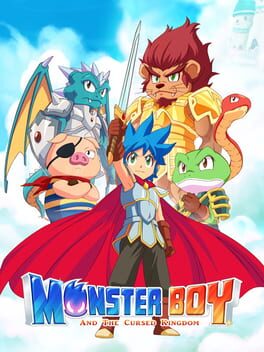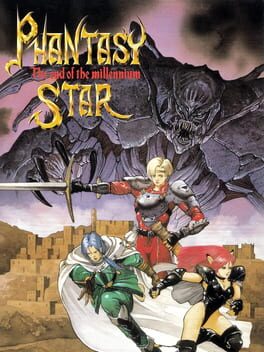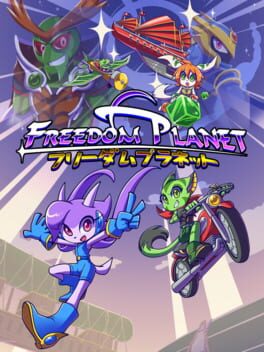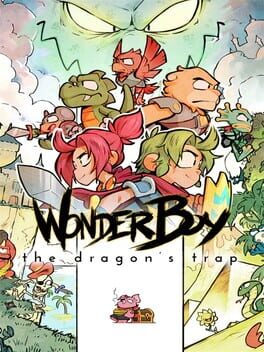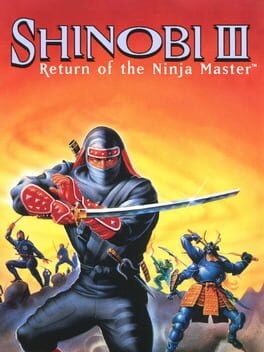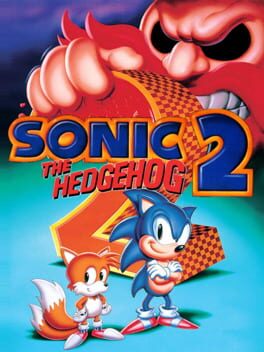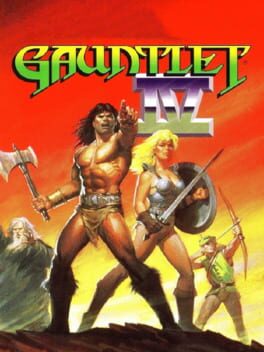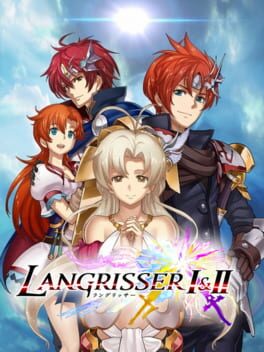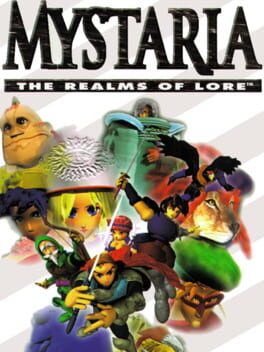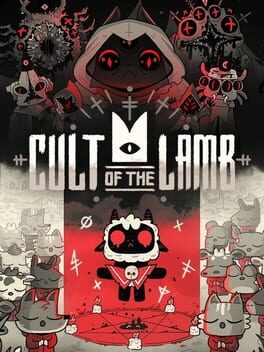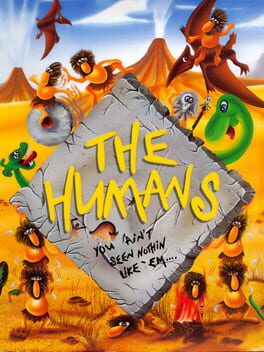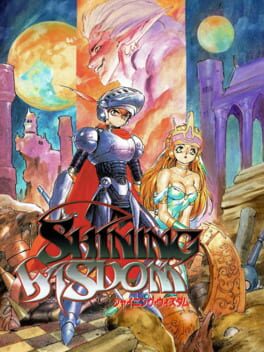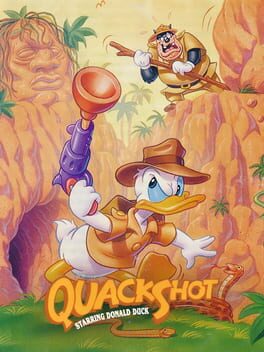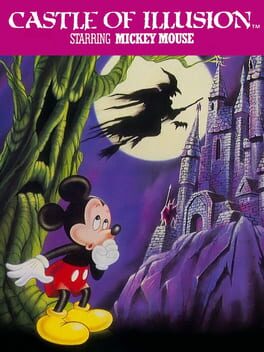GhaleonEB
BACKER
If you have never played any of the Wonder Boy / Monster World games, then Monster Boy is merely a vividly colorful, beautifully animated metroidvania with a long quest, tons of varied areas, great puzzles and action, charming characters, fun abilities and a killer soundtrack.
But if you have played the prior games, Monster Boy is all that plus richly realized love letter to every game in the series, packed end to end with homages and references to the earlier games, right down to new versions of nearly every classic tune from the series, plus a ton of original tracks from an array of great composers, including some banging tracks from my personal favorite game composer, Yuzo Koshiro. I'll never forget the feeling I had when the delightful new rendition of the Side-crawler's Dance (the beach theme from Wonder Boy III) started playing at the beginning. Or the delightfully frenetic running animation of pig-boy in a wind-swept field under the sun while euphorically joyful music jams. Or the hilarious prison escape sequence, solving the big secret in the volcano, or the series of cascading epiphanies that result in clearing the haunted mansion.
A beautiful love-letter to one of my favorite series, it's one of those games that feels like it was made just for me. Monster Boy is everything I love about videogames.
But if you have played the prior games, Monster Boy is all that plus richly realized love letter to every game in the series, packed end to end with homages and references to the earlier games, right down to new versions of nearly every classic tune from the series, plus a ton of original tracks from an array of great composers, including some banging tracks from my personal favorite game composer, Yuzo Koshiro. I'll never forget the feeling I had when the delightful new rendition of the Side-crawler's Dance (the beach theme from Wonder Boy III) started playing at the beginning. Or the delightfully frenetic running animation of pig-boy in a wind-swept field under the sun while euphorically joyful music jams. Or the hilarious prison escape sequence, solving the big secret in the volcano, or the series of cascading epiphanies that result in clearing the haunted mansion.
A beautiful love-letter to one of my favorite series, it's one of those games that feels like it was made just for me. Monster Boy is everything I love about videogames.
As heartbreaking as it's been for Sega to abandon the OG Phantasy Star series, it's hard to imagine a better send-off for it. Phantasy Star IV somehow integrates the story threads from all three preceding games - with a particular focus on the beloved first and second - into a cohesive story, and then builds upon that story to a tremendous climax and satisfying conclusion.
The story is sprawling and filled with adventure, tragedy, romance and a strong feeling of foreboding as as the depth of the threat Algo is under becomes clear. The cinema scenes still pop with great art panels, writing and pacing, and there are a couple of real gut-punch story developments.
As a fan of the earlier games, it's a lot of fun to revisit this and see how well this game references them, from characters and locations to remixes of classic PS1 dungeon themes. But beyond all the references, this is a rock-solid RPG with a well designed world, long and engaging quest, great characters and a steady challenge throughout.
One of the very best Genesis games and among the best RPGs of the era. Still holds up brilliantly.
Played on Genesis Mini.
The story is sprawling and filled with adventure, tragedy, romance and a strong feeling of foreboding as as the depth of the threat Algo is under becomes clear. The cinema scenes still pop with great art panels, writing and pacing, and there are a couple of real gut-punch story developments.
As a fan of the earlier games, it's a lot of fun to revisit this and see how well this game references them, from characters and locations to remixes of classic PS1 dungeon themes. But beyond all the references, this is a rock-solid RPG with a well designed world, long and engaging quest, great characters and a steady challenge throughout.
One of the very best Genesis games and among the best RPGs of the era. Still holds up brilliantly.
Played on Genesis Mini.
2014
Freedom Planet is a mostly excellent platformer. I loved the giant, sprawling levels and how richly the game rewards exploring them. The visuals are wonderful, with great character designs and tons of fun details in the colorful art.
Freedom Planet's roots as a Sonic fan game are on display, but that's not a bad thing as it's got a very strong personality of its own. In particular, the story and characters are very strong and memorable. The story gets a bit heavier than I expected given the early tone, but it sets the stakes well.
Lastly, the soundtrack is an all-time great. I picked it up on Bandcamp and listen to it regularly, just a joyful assortment of catchy tunes and fun instrumentation. Each paired stage featuring the same theme but remixed was a great choice.
The boss fights are the weakest aspect of the game, as I found they contributed to very uneven pacing. Most were simply not very fun to fight and ground the game to a halt. If the game excluded most of them I'd have enjoyed it more. I hope this aspect is improved in the sequel.
Played through the as Lilac campaign. Worth noting, every character has some unique levels, so there's more to find on a replay.
Freedom Planet's roots as a Sonic fan game are on display, but that's not a bad thing as it's got a very strong personality of its own. In particular, the story and characters are very strong and memorable. The story gets a bit heavier than I expected given the early tone, but it sets the stakes well.
Lastly, the soundtrack is an all-time great. I picked it up on Bandcamp and listen to it regularly, just a joyful assortment of catchy tunes and fun instrumentation. Each paired stage featuring the same theme but remixed was a great choice.
The boss fights are the weakest aspect of the game, as I found they contributed to very uneven pacing. Most were simply not very fun to fight and ground the game to a halt. If the game excluded most of them I'd have enjoyed it more. I hope this aspect is improved in the sequel.
Played through the as Lilac campaign. Worth noting, every character has some unique levels, so there's more to find on a replay.
This is a loving remake to one of my favorite games ever, Wonder Boy III: The Dragon's Trap on the Sega Master System. I'd played that game to death when I was a kid, and still periodically revisit it.
As a remake, it is very smartly designed. Fully remade with gorgeous hand-drawn animation and backgrounds, the bones of the game are none the less very faithful the original, with a few tweaks. The game has a toggle that can switch between the new, beautifully hand-drawn art and the original SMS pixel art, showing both how faithful the remake is and how clever many of the visual updates are. There's also a toggle for the music and sound, allowing combinations of retro graphics and/or sound, rather than all or the other. (I enjoy the original chiptunes a great deal, so I play with the new graphics and OG sound.)
The overall adventure is still the same, hopping from one animal form to another in order to unwind a curse that is put upon the titular boy (or girl, in this version! progress!) in the intro. The gameplay and world design holds up, with the only major indicator that of its roots as an 8-bit game being the decidedly horizontal level design.
There are some new ideas here, as while the original game had many secrets to find, this remake adds a few more, namely in the way the stones work and are found, leading to some of the few world design updates. These new areas have a very different feel than the OG game, but still integrate into it well.
I do wish saving worked a bit more like how it did in the original, and dying did so as well. And while they did add a password feature to mimic the original after fan requests, it's buried in menus and very counterintuitive to use. The world design is relatively simple compared to later metroidvania games, but as a whole it fits together beautifully.
All in all this is a great version of a great game and I'm really glad it exists. The modern return of Wonder Boy has been a lot of fun to experience, as a longtime fan of the series.
As a remake, it is very smartly designed. Fully remade with gorgeous hand-drawn animation and backgrounds, the bones of the game are none the less very faithful the original, with a few tweaks. The game has a toggle that can switch between the new, beautifully hand-drawn art and the original SMS pixel art, showing both how faithful the remake is and how clever many of the visual updates are. There's also a toggle for the music and sound, allowing combinations of retro graphics and/or sound, rather than all or the other. (I enjoy the original chiptunes a great deal, so I play with the new graphics and OG sound.)
The overall adventure is still the same, hopping from one animal form to another in order to unwind a curse that is put upon the titular boy (or girl, in this version! progress!) in the intro. The gameplay and world design holds up, with the only major indicator that of its roots as an 8-bit game being the decidedly horizontal level design.
There are some new ideas here, as while the original game had many secrets to find, this remake adds a few more, namely in the way the stones work and are found, leading to some of the few world design updates. These new areas have a very different feel than the OG game, but still integrate into it well.
I do wish saving worked a bit more like how it did in the original, and dying did so as well. And while they did add a password feature to mimic the original after fan requests, it's buried in menus and very counterintuitive to use. The world design is relatively simple compared to later metroidvania games, but as a whole it fits together beautifully.
All in all this is a great version of a great game and I'm really glad it exists. The modern return of Wonder Boy has been a lot of fun to experience, as a longtime fan of the series.
Shinobi III is one of the best action games on the Genesis and still the best game in the very good Shinobi series. Everything clicks - the controls are tight and once mastered allow for precision movement. Which is good, because by the end of the game, precision movement is required. The move set is greatly expanded from Revenge of Shinobi. Musashi can sprint now, enabling speedy travel through levels and a way to quickly close the distance on enemies, capped with a lunging attack. Jump kicks, wall jumps, clinging to and clambering across ceilings - these actions once mastered enable us to flow through levels in style, and it feels amazing to not just overcome the challenges of the game, but doing so with style and a flourish.
The graphics are exceptional, with excellent animation for all characters and enemies, good effects work and clear, well detailed environmental and character designs. Every level is given depth through some of the most extensive parallax on the Genesis. The soundtrack is somehow up to the task of following Yuzo Koshiro's legendary work in Revenge of Shinobi, with a widely varied score spanning tracks that are slower and atmospheric when it suits the level to straight up rock (the jet ski sequences). Every track is great, and I still listen to this OST regularly all these years later.
But the true star here is the level design: every stage introduces new ideas and challenges, and they slowly make increasing use of verticality and require exploration in order to progress. Each presents several initial opportunities to make use of moves like wall climbing to get a feel for it before later requiring it to both advance and find secrets. Pure action stages on horseback or the aforementioned jet ski break up the longer levels, and the game climaxes in a pair of long and very intense platforming stages that epitomize the 'tough but fair' game design, making the game incredibly salifying to clear. Everything from the health and ammo systems to the abundance of secret stashes of supplies is tuned to walk that line.
This was my favorite Genesis action game when I was a kid, and probably my most replayed game ever. Playing it again for the first time in many years, I was struck at how well it holds up. Solid game design never ages. This game simply rocks.
Played on Genesis mini.
The graphics are exceptional, with excellent animation for all characters and enemies, good effects work and clear, well detailed environmental and character designs. Every level is given depth through some of the most extensive parallax on the Genesis. The soundtrack is somehow up to the task of following Yuzo Koshiro's legendary work in Revenge of Shinobi, with a widely varied score spanning tracks that are slower and atmospheric when it suits the level to straight up rock (the jet ski sequences). Every track is great, and I still listen to this OST regularly all these years later.
But the true star here is the level design: every stage introduces new ideas and challenges, and they slowly make increasing use of verticality and require exploration in order to progress. Each presents several initial opportunities to make use of moves like wall climbing to get a feel for it before later requiring it to both advance and find secrets. Pure action stages on horseback or the aforementioned jet ski break up the longer levels, and the game climaxes in a pair of long and very intense platforming stages that epitomize the 'tough but fair' game design, making the game incredibly salifying to clear. Everything from the health and ammo systems to the abundance of secret stashes of supplies is tuned to walk that line.
This was my favorite Genesis action game when I was a kid, and probably my most replayed game ever. Playing it again for the first time in many years, I was struck at how well it holds up. Solid game design never ages. This game simply rocks.
Played on Genesis mini.
1992
Revisiting Sonic 2 after a couple decades, I'm once again struck by how this is both a perfect sequel and a conservative one. There's been a huge expansion in level variety over the first game, reimagined (but not necessarily better) bonus modes, tons of new ideas in the stage designs, a great new sidekick (Tails rules) and a soundtrack that somehow tops the legendary original.
On the flip side, there's only one new move (the now-iconic spin dash), zero new power ups, and gameplay that is only subtlety - those smartly - refined. And the traumatizing drowning music is still there, so that's a half star gone right there.
Otherwise, yeah, this is a stunning platformer and still a reference point for how to make a great sequel: do everything the original did, only bigger and better, and don't screw up anything it did well.
Played on Genesis mini.
On the flip side, there's only one new move (the now-iconic spin dash), zero new power ups, and gameplay that is only subtlety - those smartly - refined. And the traumatizing drowning music is still there, so that's a half star gone right there.
Otherwise, yeah, this is a stunning platformer and still a reference point for how to make a great sequel: do everything the original did, only bigger and better, and don't screw up anything it did well.
Played on Genesis mini.
1994
Earthbound is a delightful twist on the JRPG formula: it's got all the mechanics and tropes of the usually fantasy-set RPG, but centered around a group of kids decidedly rooted in the mundane, on earth.
All the usual mechanics and concepts are grounded, some through simple renaming, some through new execution: Save points? You use phone to call your dad, and he writs down what you've done so far. Speaking of your dad, while you earn money for battles, you don't get it then. You gotta call dad back in town, who deposits the money in your bank; then you hit the ATM to collect it. On the more cosmetic front, magic is renamed Psi. But really, it's MP.
The stuff I didn't care for: in battle, there is laterally zero character animation in the entire game. Instead you fight static sprites against wildly mode-7 distorted backgrounds. In shifting the character animation to the background we do get some variety, but I found it distracting and difficult to even look at sometimes. The inventory system is very stingy, forcing constant management with storage and/or drops along the way. And the game leans very heavily on status effects, with a long list of ailments some of which, early on, are so debilitating they force you back to town to heal. This happens a LOT.
Also be warned: Earthbound is extremely grindy. I spent hours grinding in very small areas for hours in order to progress, at several points in the story. I didn't mind much - I'm okay with grinding - but it's not for everyone. Lastly, the dungeons are all disappointing, most are small and linear with just a couple of forks. The game's emphasis is elsewhere.
Against these quibbles is a great set of characters, beautiful massive towns (that we spend a large proportion of the game in), some neat innovations in the combat mechanics, a sometimes great OST (minus the battle music), a story that keeps turning up fun surprises and is filled with imagination, and one of the best party member introductions ever.
This is a charming, often tough RPG with a terrifically realized setting and lots of great ideas.
Played to completion on SNES Classic.
All the usual mechanics and concepts are grounded, some through simple renaming, some through new execution: Save points? You use phone to call your dad, and he writs down what you've done so far. Speaking of your dad, while you earn money for battles, you don't get it then. You gotta call dad back in town, who deposits the money in your bank; then you hit the ATM to collect it. On the more cosmetic front, magic is renamed Psi. But really, it's MP.
The stuff I didn't care for: in battle, there is laterally zero character animation in the entire game. Instead you fight static sprites against wildly mode-7 distorted backgrounds. In shifting the character animation to the background we do get some variety, but I found it distracting and difficult to even look at sometimes. The inventory system is very stingy, forcing constant management with storage and/or drops along the way. And the game leans very heavily on status effects, with a long list of ailments some of which, early on, are so debilitating they force you back to town to heal. This happens a LOT.
Also be warned: Earthbound is extremely grindy. I spent hours grinding in very small areas for hours in order to progress, at several points in the story. I didn't mind much - I'm okay with grinding - but it's not for everyone. Lastly, the dungeons are all disappointing, most are small and linear with just a couple of forks. The game's emphasis is elsewhere.
Against these quibbles is a great set of characters, beautiful massive towns (that we spend a large proportion of the game in), some neat innovations in the combat mechanics, a sometimes great OST (minus the battle music), a story that keeps turning up fun surprises and is filled with imagination, and one of the best party member introductions ever.
This is a charming, often tough RPG with a terrifically realized setting and lots of great ideas.
Played to completion on SNES Classic.
1993
I picked this up at the recommendation of a retro game reviewer I follow, and was not disappointed. The game features several modes, including a perfect port of the arcade version of the original Gauntlet. The mode I played was the main reason I picked it up: the Quest (aka, campaign) which was built just for this version.
On the surface, it's pretty straight forward: clear four towers that are locking the final castle, and then tackle the castle. Each has ten levels of monster and loot-strewn mazes to clear, for fifty levels and five bosses. Gain XP and gold and improve your stats and gear along the way. The home base is just a shop with the entrances to the towers and castle collected, and there's only a handful of items and gear to find along the way.
In execution, the game takes a threadbare premise and makes the most of it by focusing on what matters most: the dungeon designs. From the first tower, it's clear they are deviously designed and often challenging to figure out. You don't clear one level at at time - often you have to enter a level from several different entrances, some from above, some from below, to hit all the secret blocks that clear it out. Clearing stages is rewarded: enemies disappear, and there's a shortcut path on every dungeon so you can zip quickly to the levels you're working on. It creates a sense of progress as each level gets cleared out.
The soundtrack is an absolute stunner, one of the best on the Genesis. Both in composition and in how it uses the Genesis synthesizer, every track is terrific. Walking into the first dungeon and getting hit with this put a big grin on my face: https://www.youtube.com/watch?v=w0-mkukUH5k
On the downside, the stages are lacking in variety. Once you clear the first dungeon, you've seen every enemy and setup the game has to offer. Each of the five dungeons are differentiated by music, monster difficulty, tile palette and different types of trap tiles in each (some slow you down, some cause sliding, etc.). Still, the dungeon designs and music are the star here and kept me going through some very challenging levels, and intense boss fights.
The password system takes a couple minutes on either end of a play session to enter and then write down, but that's retro gaming for you. I did not mind.
All in all I had a blast with this. Clear time for the Quest mode, in single-player, was just over 13 hours.
On the surface, it's pretty straight forward: clear four towers that are locking the final castle, and then tackle the castle. Each has ten levels of monster and loot-strewn mazes to clear, for fifty levels and five bosses. Gain XP and gold and improve your stats and gear along the way. The home base is just a shop with the entrances to the towers and castle collected, and there's only a handful of items and gear to find along the way.
In execution, the game takes a threadbare premise and makes the most of it by focusing on what matters most: the dungeon designs. From the first tower, it's clear they are deviously designed and often challenging to figure out. You don't clear one level at at time - often you have to enter a level from several different entrances, some from above, some from below, to hit all the secret blocks that clear it out. Clearing stages is rewarded: enemies disappear, and there's a shortcut path on every dungeon so you can zip quickly to the levels you're working on. It creates a sense of progress as each level gets cleared out.
The soundtrack is an absolute stunner, one of the best on the Genesis. Both in composition and in how it uses the Genesis synthesizer, every track is terrific. Walking into the first dungeon and getting hit with this put a big grin on my face: https://www.youtube.com/watch?v=w0-mkukUH5k
On the downside, the stages are lacking in variety. Once you clear the first dungeon, you've seen every enemy and setup the game has to offer. Each of the five dungeons are differentiated by music, monster difficulty, tile palette and different types of trap tiles in each (some slow you down, some cause sliding, etc.). Still, the dungeon designs and music are the star here and kept me going through some very challenging levels, and intense boss fights.
The password system takes a couple minutes on either end of a play session to enter and then write down, but that's retro gaming for you. I did not mind.
All in all I had a blast with this. Clear time for the Quest mode, in single-player, was just over 13 hours.
2019
I completed both games in this collection for Switch. Warsong on the Genesis has been on my backlog for a long while - and still is - but I wanted to play both remakes since it may be a while before I went back to the OG for the Genesis (Warsong is Langrisser 1 in NA.)
These are great strategy games with rock-solid game design and progression systems, offering a long series of well crafted battles and many leaders to choose from, each of which has their own upgrade paths. One could play these games several times with different mixes of characters and troupes and have the battles play out differently. From a nuts and bolts gameplay standpoint, I really enjoyed both.
But dear lord, the misogyny in the writing and art is so awful. The men are hulking buff guys in armor with take charge attitudes. The women are reduced to pining after them in clothing barely more than lingerie, begging just to stay by side of their men and not be a burden. In-game, Narm is a raging badass riding and leading dragons into battle. In the story she's deferential, wanting only to please her man while trying not to have her breasts fall out of her barely-there clothing.
I really liked how these games played. I really hated how they treated women. From the art and clearly-new translation, I suspect how the women are handled is a new addition. I'm gonna chase down Warsong on the Genesis and hope it fares better in that department.
These are great strategy games with rock-solid game design and progression systems, offering a long series of well crafted battles and many leaders to choose from, each of which has their own upgrade paths. One could play these games several times with different mixes of characters and troupes and have the battles play out differently. From a nuts and bolts gameplay standpoint, I really enjoyed both.
But dear lord, the misogyny in the writing and art is so awful. The men are hulking buff guys in armor with take charge attitudes. The women are reduced to pining after them in clothing barely more than lingerie, begging just to stay by side of their men and not be a burden. In-game, Narm is a raging badass riding and leading dragons into battle. In the story she's deferential, wanting only to please her man while trying not to have her breasts fall out of her barely-there clothing.
I really liked how these games played. I really hated how they treated women. From the art and clearly-new translation, I suspect how the women are handled is a new addition. I'm gonna chase down Warsong on the Genesis and hope it fares better in that department.
Mystaria is one of the ugliest genuinely great games I've ever played. It's a 3D SRPG with superb battlefield, combat and character ability designs and truly dire visuals.
The story is basic, the overworld small. There's only a couple of towns and they're all narrow first person corridors with a few doors to enter. The polygon graphics are atrocious, with a low frame rate, short draw distance and muddy textures. The character designs sum up everything that went wrong when CG character design suddenly became a thing at the tail end of the prior generation.
But none of that matters, because as an SRPG, it's brilliant. The battlefields make smart use of the 3D terrain and obstacles, and often present several valid ways to approach a conflict. Each layout is unique and takes very good strategy to overcome what are frequently daunting odds. The character abilities are all unique and you can cobble together several different combinations of effective parties that have a pronounced impact on the strategies that should be used. Abilities and stats are surprisingly nuanced and well thought out. Protip: have an effective archer!
And the soundtrack, to put it scientifically, rules. The intro video is a good summation of the game itself: bad visuals and character designs, but the music is ludicrously good and makes up for it all. https://www.youtube.com/watch?v=DQdQXGLHJRM
Loved this when it first came out, and, assuming you can get over the simple plot and bad visuals, Mystaria still holds up very well, as my recent replay confirmed. A very muddy gem on the Saturn.
The story is basic, the overworld small. There's only a couple of towns and they're all narrow first person corridors with a few doors to enter. The polygon graphics are atrocious, with a low frame rate, short draw distance and muddy textures. The character designs sum up everything that went wrong when CG character design suddenly became a thing at the tail end of the prior generation.
But none of that matters, because as an SRPG, it's brilliant. The battlefields make smart use of the 3D terrain and obstacles, and often present several valid ways to approach a conflict. Each layout is unique and takes very good strategy to overcome what are frequently daunting odds. The character abilities are all unique and you can cobble together several different combinations of effective parties that have a pronounced impact on the strategies that should be used. Abilities and stats are surprisingly nuanced and well thought out. Protip: have an effective archer!
And the soundtrack, to put it scientifically, rules. The intro video is a good summation of the game itself: bad visuals and character designs, but the music is ludicrously good and makes up for it all. https://www.youtube.com/watch?v=DQdQXGLHJRM
Loved this when it first came out, and, assuming you can get over the simple plot and bad visuals, Mystaria still holds up very well, as my recent replay confirmed. A very muddy gem on the Saturn.
2022
A reasonably good entry in the roguelite genre. Or what I call, do randomized dungeons, then do something relaxing, then repeat, genre. Cult of the lamb has a great juxtaposition between the cute and creepy, leaning into a mix of cult and cosmic horror, with adorable characters.
Where it falls down, at least on the Switch version, is performance. Frame rate drops and hard crashes were numerous in my game. But worse was the repetitive boss design, cramped building space and catastrophically bad final boss, where the combat design really fell apart. I'm still shocked at the geometry traps, poor perspective and poor enemy design in finale.
Some fun humor in here and it plays decently, but there was a lot that just didn't click with me.
Where it falls down, at least on the Switch version, is performance. Frame rate drops and hard crashes were numerous in my game. But worse was the repetitive boss design, cramped building space and catastrophically bad final boss, where the combat design really fell apart. I'm still shocked at the geometry traps, poor perspective and poor enemy design in finale.
Some fun humor in here and it plays decently, but there was a lot that just didn't click with me.
1992
The Humans is a puzzle/platformer, a genre I'd not played before. It's a better puzzle game than a platform or action game, as some of the mechanics can be clunky a times. A few stages push the action or platforming elements to the point where the rough edges come to the foreground. But those handful of issues aside, even stage is incredibly well designed and were fun to crack. And many of them had multiple solutions, including some enormous shortcuts. (It's not entirely clear to me if all of them were intentional, but the stages are so well thought out that I suspect most of them are).
The main flaw is in the lack of variety: all the ideas are on the table by around level 35 or so, after which the game iterates. Against this flaw is a lot of creativity, and very smart pacing. Right up through the end, the long and complex levels are followed by several bite-sized ones. This gives the game a cadence to the challenge, rather than having escalating complexity and challenge that could turn the endgame into a slog. Really smart game design.
There's also the issue of audio: on the Genesis, I could play with music or sound effects - but not both. Selecting one turns the other off. It's not as if either is pushing the Genesis hardware, so I suspect this a result of a rushed port from developers not familiar with the hardware. I played with sound effects instead of music as I found I needed the feedback that came from selecting and completing actions.
This genre of level-based action/puzzle games is new to me and I had a lot of fun with it. With a touch more variety and better audio it would have been better, but for the content they had, it's an incredibly well designed game, especially given the small team per the credits.
The main flaw is in the lack of variety: all the ideas are on the table by around level 35 or so, after which the game iterates. Against this flaw is a lot of creativity, and very smart pacing. Right up through the end, the long and complex levels are followed by several bite-sized ones. This gives the game a cadence to the challenge, rather than having escalating complexity and challenge that could turn the endgame into a slog. Really smart game design.
There's also the issue of audio: on the Genesis, I could play with music or sound effects - but not both. Selecting one turns the other off. It's not as if either is pushing the Genesis hardware, so I suspect this a result of a rushed port from developers not familiar with the hardware. I played with sound effects instead of music as I found I needed the feedback that came from selecting and completing actions.
This genre of level-based action/puzzle games is new to me and I had a lot of fun with it. With a touch more variety and better audio it would have been better, but for the content they had, it's an incredibly well designed game, especially given the small team per the credits.
1995
The Shining series having spanned first-person dungeon and strategy RPGs, Shining Wisdom moved onto Zelda-like territory, with much less success than the prior genre entries. The world design, dungeons and story are all excellent and it was a lot of fun to aquire abilities and then re-explore areas for new secrets, which is frequently rewarded, and some of the secret areas or minigames are pretty substantial. The score is also excellent.
The failings here are largely in the controls and artwork. Character models are 2D sprites of 3D renderings of that mid-90''s style during the transition to 32-bit systems, and it's not pretty. Worse are controls that are a bit muddy, and catastrophic is the decision to require power moves charge up by hammering the power button to fill a meter as opposed to just...holding it down? Very strange.
Still, for me the great world and dungeon designs push this into 'fun but flawed' territory. Wisdom is probably the black sheep of the OG Shining series, but it's still not a bad game.
The failings here are largely in the controls and artwork. Character models are 2D sprites of 3D renderings of that mid-90''s style during the transition to 32-bit systems, and it's not pretty. Worse are controls that are a bit muddy, and catastrophic is the decision to require power moves charge up by hammering the power button to fill a meter as opposed to just...holding it down? Very strange.
Still, for me the great world and dungeon designs push this into 'fun but flawed' territory. Wisdom is probably the black sheep of the OG Shining series, but it's still not a bad game.
Quackshot is one of those rare games that is fun immediately, and stays that way right through to the end with no missteps along the way. An action platformer starring Donald Duck in full Ducktails / Indiana Jones mode. It packs an enormous amount of variety into it's hour long playtime.
The structure is creative: instead of a series of stages you play linearly, every level is broken into parts, and you can usually only play the first one up to a point before hitting an obstacle. The key to getting past that obstacle is located in another stage, and you can pick from one of several stages to play at any point in time, up until the the final two. This means we're constantly playing short, highly varied levels and hopping around between different environments with the option of several different orders to play through. Nothing ever wears out its welcome and the option to tackle stages in different orders made replaying the game feel fresh.
Donald's signature attack is a plunger gun, which stuns but does not kill enemies. This factors into the core gameplay loop, as you need to progress past stunned enemies lest they revive and resume attacking. So while there is no timer running on any stage, there is some pressure to keep moving. Early in the game the plungers start sticking to walls and forming temporary platforms, and that's when the game goes from good to great. Most stages require clever use of the plunger to scale surfaces, find secrets and work around danger. The controls are superb and it just feels great to jump, fire a shot into the wall, and then land on it.
Levels can be simple side scrolling platforming affairs, or involve lots of vertical climbing. Some stages feature fast segments on ziplines or carts, while others require slow navigation through traps and obstacles. There's even a maze thrown into the mix to overcome. It's a testament to how well designed Quackshot is that every type of stage is fun - there's not a bummer of a stage among them.
Quackshot is features gorgeous artwork, very colorful and is well animated. It's also not especially difficult, some rather trickly platforming near the end aside. That could be seen as a major downside, but I found the whole game to be very well balanced. It's seldom straight up easy, as platforming failures usually result in instant death and several areas require great focus and precision. But for most experienced players, it's an easy clear.
And that's okay. The intended audience here was not hardcore gamers, it's Donald Duck game. This is a highly accessible, enormously entertaining romp with a great deal of variety. There are no technical issues, it's constantly very pretty and the soundtrack is great throughout. My only quibble is I'd like to have had it be a bit longer, and with a password system so I could have rested my old hands during a playthrough. Otherwise, this is pretty much a perfect bite-sized action game.
The structure is creative: instead of a series of stages you play linearly, every level is broken into parts, and you can usually only play the first one up to a point before hitting an obstacle. The key to getting past that obstacle is located in another stage, and you can pick from one of several stages to play at any point in time, up until the the final two. This means we're constantly playing short, highly varied levels and hopping around between different environments with the option of several different orders to play through. Nothing ever wears out its welcome and the option to tackle stages in different orders made replaying the game feel fresh.
Donald's signature attack is a plunger gun, which stuns but does not kill enemies. This factors into the core gameplay loop, as you need to progress past stunned enemies lest they revive and resume attacking. So while there is no timer running on any stage, there is some pressure to keep moving. Early in the game the plungers start sticking to walls and forming temporary platforms, and that's when the game goes from good to great. Most stages require clever use of the plunger to scale surfaces, find secrets and work around danger. The controls are superb and it just feels great to jump, fire a shot into the wall, and then land on it.
Levels can be simple side scrolling platforming affairs, or involve lots of vertical climbing. Some stages feature fast segments on ziplines or carts, while others require slow navigation through traps and obstacles. There's even a maze thrown into the mix to overcome. It's a testament to how well designed Quackshot is that every type of stage is fun - there's not a bummer of a stage among them.
Quackshot is features gorgeous artwork, very colorful and is well animated. It's also not especially difficult, some rather trickly platforming near the end aside. That could be seen as a major downside, but I found the whole game to be very well balanced. It's seldom straight up easy, as platforming failures usually result in instant death and several areas require great focus and precision. But for most experienced players, it's an easy clear.
And that's okay. The intended audience here was not hardcore gamers, it's Donald Duck game. This is a highly accessible, enormously entertaining romp with a great deal of variety. There are no technical issues, it's constantly very pretty and the soundtrack is great throughout. My only quibble is I'd like to have had it be a bit longer, and with a password system so I could have rested my old hands during a playthrough. Otherwise, this is pretty much a perfect bite-sized action game.
This is a classic platformer that I had always wanted to play, but never had the chance until I got the Genesis Mini. I knew it had great animation and fun controls, and it did. While not long, every level has quite a few secrets to discover and unique gameplay and obstacles to tackle; it's fairly bursting with great ideas all the way through. The game feels joyful to play from the start, and keeps that all the way through.
It's an interesting snapshot of the lifespan of the Genesis. This seems like one of the earliest titles to really start to show the promise of the system, in a way a prelude of the incredible action games that came in the next few years. As is, Castle of Illusion is a solid hop and bop platformer with beautiful animation and music, coming right before the true greats hit the system.
Played on Genesis Mini.
It's an interesting snapshot of the lifespan of the Genesis. This seems like one of the earliest titles to really start to show the promise of the system, in a way a prelude of the incredible action games that came in the next few years. As is, Castle of Illusion is a solid hop and bop platformer with beautiful animation and music, coming right before the true greats hit the system.
Played on Genesis Mini.
